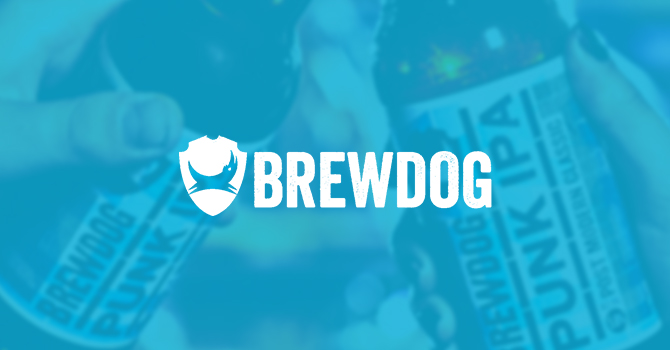
Scotland’s BrewDog allegedly submitted false information to the U.S. Department of Treasury’s Alcohol and Tobacco Tax and Trade Bureau (TTB) when it was exporting its beer to the U.S. before opening its Columbus, Ohio-based brewery, according to a report from the BBC.
BrewDog employees told the BBC that they were “under pressure in 2016 and 2017 to ship beer with ingredients that had not been legally approved.” In its investigation, the BBC received evidence that pointed to at least five incidents of false information provided to the TTB during a six-month span. BrewDog excluded extracts in its Elvis Juice and Jet Black Heart offerings from paperwork submitted to the TTB to ensure that the beers would be acceptable for import.
Founder and CEO James Watt took to LinkedIn to explain how the company “made some mistakes with the paperwork on the first few shipments.”
“All applicable taxes were always paid in full, but the paperwork was not always correct in the first few months back in 2017 and we did not realise we needed to get things like the Elvis Juice recipe and ingredients approved in advance (although this was subsequently approved),” he wrote. “In hindsight, there were oversights in labelling and paperwork due to the fact we were trying to run a growing business on one side of the Atlantic and start a new business on the other. We subsequently contacted the relevant authorities (the TTB) to inform them, they looked into the matter and have responded and told us no further action would be taken here.”
Watt wrote that BrewDog contacted former TTB senior counsel Tom Niekamp, who told the brewery its “errors … would not risk an importer’s license.”
However, the BBC reported that it remains unclear if BrewDog reported the omission at the time of the alleged offense or after the BBC wrote to them ahead of its upcoming expose, “Disclosure: The Truth About BrewDog,” which is set to air on January 24 on BBC One Scotland.
Former TTB labeling specialist Battle Martin told the BBC that the falsified documents were a “serious” offense and “there has been a deception here.”
“In my view, based on the number of products and based on the number of times this has happened, I think it warrants further investigation, because it shows a pattern,” Martin added.
BrewDog employees told the BBC that they felt “enormous” pressure to “just make it happen.”
“That was the culture,” one unnamed worker said. “It was clear to us this was coming from the top – from James.”
Dan Shelton, co-founder of former beer importer Shelton Brothers Inc., told the BBC BrewDog had misled his company when it imported one shipment for the Scottish beer maker.
“They did lead somebody in my company to falsify documents,” Shelton said. “And, of course, I’m not happy about that; I don’t respect that, I don’t like it.”
BrewDog opened its U.S.-based operation in 2017, when it produced 4,144 barrels of beer, according to the Brewers Association. The company’s output since then has grown rapidly. In 2020, BrewDog’s volume increased +44%, to 62,542 barrels, making it the nation’s 41st largest craft brewer by volume, according to the trade group.
In his LinkedIn post, Watt acknowledged that a delay in the company’s brewing equipment for its Ohio facility left it without beer to sell in its first month of operation.
“When we opened our first U.S. taproom almost 6 years ago and our U.S. business was a stone-cold start-up, we had a bar, 100 staff and no beer,” he wrote. “This is because our brewing equipment was delayed. So, we had to import some beer from our Ellon brewery: If we didn’t have beer to sell, we could have gone bust in the U.S. in our first month.”
BrewDog USA provided the following comment:
“BrewDog approaches regulatory compliance with the upmost [sic] seriousness and care. Our team is committed and diligent in taking all necessary steps and setting the standard for world-class compliance. If we fall-short of our own standards, we hold ourselves to account. As soon as we became aware of potential, past TTB missteps made in 2016 and early 2017, we immediately self-reported the issues to the TTB through its voluntary disclosure program. We are confident in our on-going compliance practices and can confirm these instances were one-offs as BrewDog entered the US market over 5 years ago. Further, we have confirmed that all ingredients in the 2016 and 2017 Elvis Juice and Jet Black Heart recipes are approved in the US for consumption and were at all times safe for consumption and legal. The TTB approved these recipes in their entirety when they were submitted following the initial label submissions.
As it relates to the importers who submitted the labels in question to TTB, a former TTB Senior Counsel confirmed that the facts at-hand would not risk an importer’s license. ‘To allege or insinuate that any fraud or perjury took place here as it relates to TTB’s labeling laws and regulations, is a monumental overreach at best. Furthermore, it’s highly unlikely that the TTB would take a draconian regulatory action in a case with unproven technical violations like this.’ Tom Niekamp, former TTB Senior Counsel. We value our import partners and would not risk their businesses or reputations.”
Keg labels for Elvis Juice and Jet Black Heart, which had been approved by the TTB, were surrendered by an importer on January 19, according to industry blog MyBeerBuzz.
This story was updated at 4:40 p.m. ET on January 21 to include the above comment from BrewDog USA.
